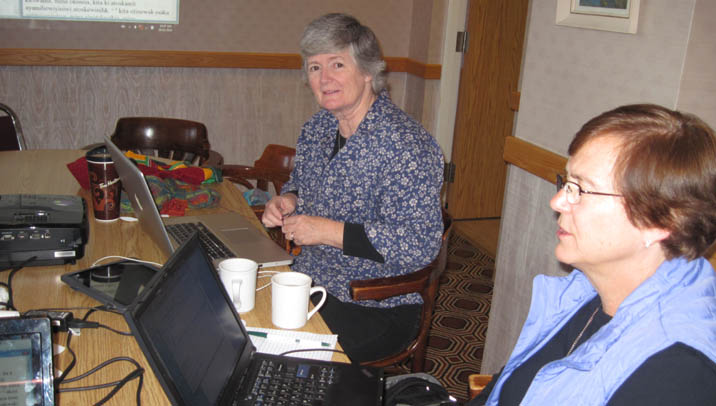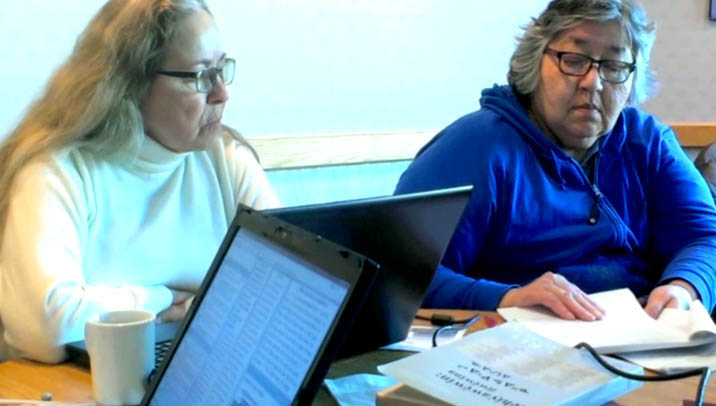Our Dear Partners,
In our previous Translation Briefs, we promised to spend some time going deeper into each of the “priorities” identified in the First Nations Bible Translation Capacity-Building Initiative.
This time, we are telling about the (Cuthand) Plains Cree translation. Plains Cree is a language spoken across Manitoba, Saskatchewan and Alberta in Canada, and even in some places in Montana in the US. In Cree, the language is called ᓀᐦᐃᔭᐍᐏᐣ nēhiyawēwin.
Of all the Cree language varieties, Plains Cree is the most widely spoken, with more than 70 communities identified, population in these communities ranging from a few hundred persons to a few communities with population of two thousand or more. The population of fluent speakers is diminishing, especially in the communities in the southern part of their territory. However, in the north and more remote communities Cree is still the primary language.
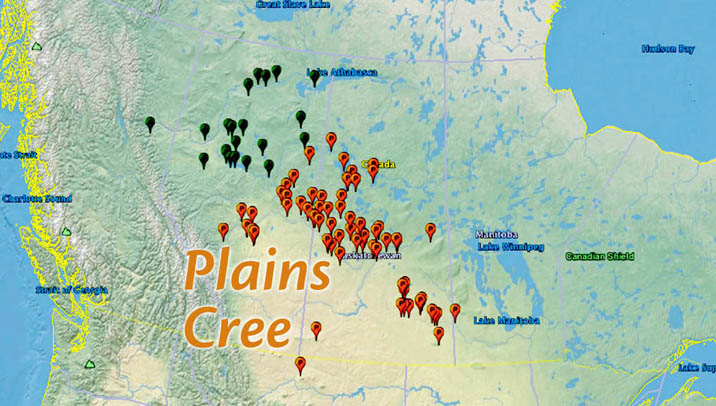 The Bible Society, First Nations church leaders, and Wycliffe/SIL have had some involvement in a Plains Cree Bible translation project since the early 1970s. In the 1980s, the Canadian Bible Society hired Rev. Stan Cuthand, an ordained minister of the Anglican Church of Canada, and a fluent Cree speaker from the Little Pine First Nation, to work on a contemporary Plains Cree translation of the Bible. Over the past two decades, Stan completed the first draft of the New Testament and roughly half of the Old Testament.
The Bible Society, First Nations church leaders, and Wycliffe/SIL have had some involvement in a Plains Cree Bible translation project since the early 1970s. In the 1980s, the Canadian Bible Society hired Rev. Stan Cuthand, an ordained minister of the Anglican Church of Canada, and a fluent Cree speaker from the Little Pine First Nation, to work on a contemporary Plains Cree translation of the Bible. Over the past two decades, Stan completed the first draft of the New Testament and roughly half of the Old Testament.
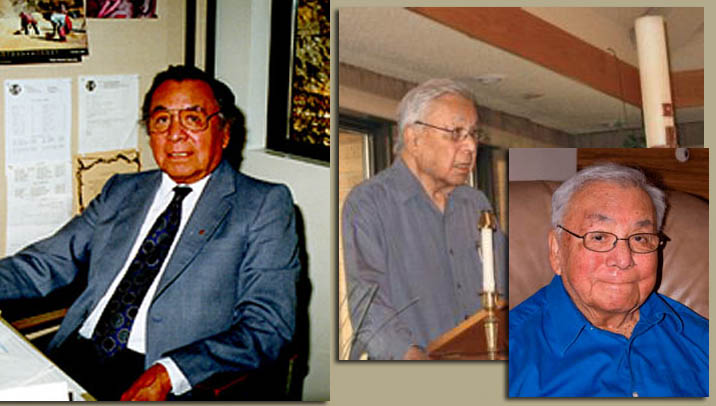 Stan Cuthand, now in his 90s, is the recipient of many awards of recognition for his contributions to the Plains Cree language and culture. As his health has declined, he has “passed the torch” for work on the Cree Bible to others now.
Stan Cuthand, now in his 90s, is the recipient of many awards of recognition for his contributions to the Plains Cree language and culture. As his health has declined, he has “passed the torch” for work on the Cree Bible to others now.
The first draft of any translation is subject to a thorough checking process before it can be published and distributed. These steps are necessary to ensure the accuracy, clarity, and naturalness of the translation. For various reasons, including a lack of resources and personnel, this process has moved ahead very slowly in recent years. Still, there are some members of the translation team that have persisted and the Bible Society has published several Scripture portions of this translation, including the Gospel of Mark, selected Psalms, the Book of Ruth and the Epistle of James.
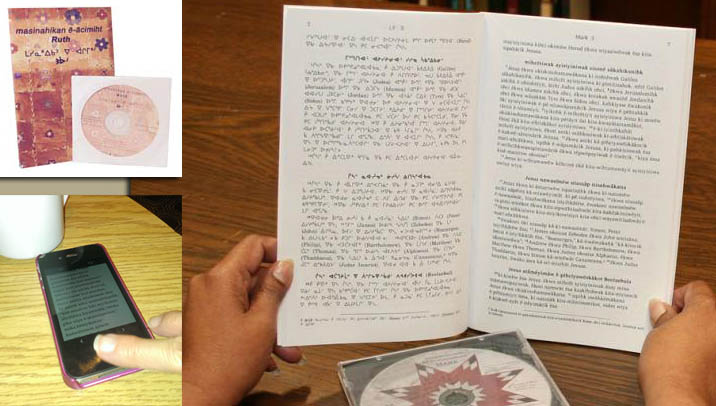 These are all published in discript: that is, both in the Cree syllabic script and in roman (alphabetic) characters, and include a CD as an “audio book”.
These are all published in discript: that is, both in the Cree syllabic script and in roman (alphabetic) characters, and include a CD as an “audio book”.
http://www.biblescanada.com/catalog/1556.htm
But much remains to be done. In November, Bill and Norma Jean were asked to assist in one of the translation review workshops in Saskatoon, Saskatchewan. Ruth Heeg, the translation consultant from the Bible Society facilitated the checking of the Gospel of John with Cree translators Dolores Sand and Gayle Weenie. During the three-day workshop, the first seven chapters of the Gospel of John were reviewed and revised, bringing this book that much closer to being available to Cree speakers.
During the workshop, we discussed possibilities of moving this translation forward at a faster pace. Dolores, one of the highly-qualified Cree translators expressed an interest in working on the project more regularly, and we are exploring options for paying a fair wage for her to work as a translator full-time. Please continue in prayer with us as the details are worked out, and as we seek funding sources to meet this need. Plains Cree speakers have waited many years to be able to read the Word of God in their heart language.
This series of messages describing each of the “priorities” identified in the First Nations Bible Translation Capacity-Building Initiative began with the story of the Mason Cree Bible. If you missed that one, you can still read about it here: <link>
We encourage you to click there and view the story of the Mason Cree Bible, its part in the Initiative and our vision and involvement in this work.
The (Cuthand) Plains Cree Translation and the Mason Cree Bible are just two of the “priorities” identified by the First Nations Bible Translation Capacity-Building Initiative. Keep watching for other posts right here that feature some of the other “priorities”, including the following components of our vision:
- Oji-Cree Translation project
- Mother-Tongue Translator (MTT) Workshops
- Naskapi Old Testament Translation project
- Mushuau Innu language project
Serving with you, Bill and Norma Jean

